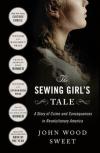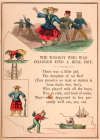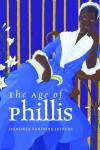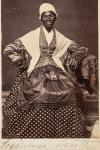Women's Studies

|
The Sewing Girl's Tale: A Story of Crime and Consequences in Revolutionary America | On a moonless night in the summer of 1793 a crime in the back room of a New York brothel transformed Lanah Sawyer’s life. It was the kind of crime that even victims usually kept secret. Instead, the seventeen-year-old seamstress did what virtually no one else dared to do: she charged a gentleman with rape. The trial rocked the city and nearly cost Lanah her life. And that was just the start. |

|
Early American Transgender Studies | A revolution in transgender rights in the United States is underway. Once marginalized and denigrated by mainstream society, the medical establishment, the legal system, and even the lesbian and gay rights movement, transgender people are increasingly gaining rights and recognition. This seminar will survey a wide range of transgender practices from the past and explore the intersection between the fields of early American history and transgender studies. |

|
Phillis Wheatley Peters and African Lineage and Kinship in The Age of Phillis | In her newest book of poetry, The Age of Phillis, Honorée Fanonne Jeffers uses creative strategies based upon fifteen years of archival research to shift emphasis away from the usual historical narratives on Phillis Wheatley Peters. Scholars of Wheatley Peters have usually focused on her life following her enslavement as a small child, beginning her biography with her 1761 arrival in Boston Harbor. |

|
Sojourner Truth Was A New Yorker, and She Didn’t Say That | Sojourner Truth Was A New Yorker. Sojourner Truth was a New Yorker from the Hudson Valley, a fact of great importance in her own life but ordinarily overlooked in her historical persona. Even though American culture has become more attuned to Black history and more understanding of the complexities of Black identity, Truth is still unwittingly confused with Harriet Tubman, another figure of enormous historical importance who was from the South, from Maryland. |
| Issues of Privacy and Publicity in the Early American Novel | ||
| Cities and Seductions: Sex and Early American Urban Fiction | ||
| Writing Home: Female Authorship and Print Culture in America, 1820-00 |